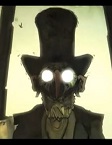IronDuke_slith
Posts: 1595
Joined: 6/30/2002
From: Manchester, UK
Status: offline

|
quote:
ORIGINAL: Tête de Porc
First of all thanks for the tip about the "Good book" thread. I will definitely have to check out some of the authors mentioned there, starting with Strachan.
quote:
Just a couple of examples [from Mosier's book]. British and French infantry doctrine [in 1914] still stressed infantry using bayonets as where the final struggle would be decided. They also expected Rifle fire from infantry to be the main killer of infantry.
This is absolutely wrong, at least when it comes to the British. The BEF in 1914 was probably the best prepared army of all on the tactical level. The British army had insitituted major changes after the Boer war, which led to much more emphasis on marksmanship and the tactical defensive. The Germans in 1914 still attacked in Napoleonic battalion columns.
quote:
I think everyone knows of the French 75 as a key weapon. It was developed when they learned how to control recoil hydraulically. But what didn't know was that its maximum elevation was just 16 degrees. That would appear that the French still expected this gun to be used in the midst of an infantry battle in a more Napoleonic style. Meanwhile, the Germans had instead used the new recoil technology to develop howitzers. Which were obviously more suited for the style of warfare that WWI turned out to be.
The guns were used for direct fire "in the midst of the infantry battle" in 1914, and they were devastatingly effective which is one of the reasons the trenches appeared.
The reason the Germans had howitzers and and hand grenades was that they had prepared for siege warfare against the Belgian forts, which had to be taken as part of the Schlieffen plan. Of course the same weapons were very useful in trench warfare, which was a form of siege warfare, but that wasn't because the Germans had predicted the future better than anyone else.
quote:
When the Germans attacked, they never just lined up their infantry for slaughter in the English way.
Again this is precisely what they did in 1914. The Osprey books on Mons and First Ypres have good blow-by-blow accounts of those battles, and it's quite clear that the Germans came on and were mowed down in dense masses. The losses on all sides in 1914 were absolutely horrific, which is why everyone started digging in. The (over)simplified British tactics at the Somme appeared because they had a lot of troops but little time to train them, so they settled on very simple tactics. (This was quite possibly the wrong decision, but understandable.)
Where the Germans really differed from the French and British in 1914 was in artillery, where they had more. They also had big production lines running, which meant they didn't have to wait for weapons production to ramp up like the allies. But the number of machine guns per battalion (two) was exactly the same as in the British army, which suggests they were not any more "in the know" about modern warfare than their opponents. (The British army had even requested increasing this to six per battalion before the war, but parliament refused.)
Mosier seems a little selective in his facts as well as his conclusions.
Agreed, I'd just change the emphasis in this bit.
quote:
The (over)simplified British tactics at the Somme appeared because they had a lot of troops but little time to train them, so they settled on very simple tactics. (This was quite possibly the wrong decision, but understandable.)
I think the tactics were largely driven by C3.
On a heavily shelled (and therefore devastated) battlefield, running into prepared positions over a wide frontage could lead to localised breakthroughs that if they succeeded and penetrated would have exposed flanks. Going might be easier in some areas etc, so to ensure units never lost touch with their flanks, everyone was ordered to walk as a standard pace. This wasn't considered stupid because a week of shelling was supposed to have destroyed the German front lines.
Regards,
IronDuke
_____________________________
|
 Printable Version
Printable Version


















 New Messages
New Messages No New Messages
No New Messages Hot Topic w/ New Messages
Hot Topic w/ New Messages Hot Topic w/o New Messages
Hot Topic w/o New Messages Locked w/ New Messages
Locked w/ New Messages Locked w/o New Messages
Locked w/o New Messages Post New Thread
Post New Thread